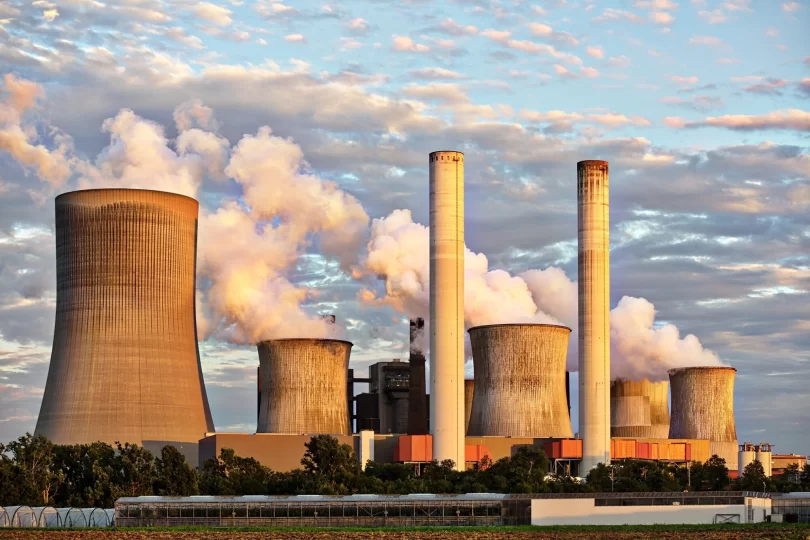Today, electric power generates the second largest share of greenhouse gas emissions (25% of the total). Considering that we need electricity for our daily lives, it can be a difficult thing to cut down on, even though it has a huge impact on our planet.
Fortunately, there are better alternative power sources available, such as nuclear energy. It utilizes nuclear reactions to produce electricity in a cleaner fashion than with fossil fuels, making it promising.
However, like all energy sources, there are both advantages and disadvantages. Read on to find out the nuclear power pros and cons you should know.
Pro: It Has a Very High Energy Density
Nuclear power has a very high energy density when compared to fossil fuels. This means it can generate a large amount of electricity with only a small amount of fuel.
This makes nuclear power an efficient source of energy. You can get thousands of megawatt hours of energy from a sole power plant, which is significantly more than you’d get when burning fossil fuels.
Con: There Are High Initial Costs
Unfortunately, it costs a hefty sum of money to build a nuclear power plant. You’ll need a generous upfront investment to ensure everything’s done in a correct and safe fashion. Not everyone has money in their budget to spare to build one, especially when there’s lots of red tape to clear as well.
In addition to the initial costs, you’ll have to pour money into maintenance. Eventually, you’ll have to pay for decommissioning too, which can take 30 years to complete.
Pro: There Are Low Operating Costs
Yes, nuclear power has high initial costs and maintenance needs. But plants actually have low operating costs over their lifetimes. The cost of uranium itself (the fuel) is pretty low, and you only need a little bit to produce large amounts of power.
When compared to running a gas combined-cycle plant, maintenance costs are still much lower for a nuclear power plant. This still holds true even if the cost of uranium increases.
Pro: It Has Low Greenhouse Gas Emissions
One of the best advantages of using nuclear power is it has low greenhouse gas emissions. When generating electricity, the plants have basically no direct greenhouse gas emissions. So it’s environmentally friendly, like solar energy.
Switching from traditional energy sources (such as fossil fuels) over to nuclear power can help mitigate climate change and also reduce air pollution.
Pro: It Provides Stable Baseload Power
Baseload power is the minimum amount of energy needed to meet and sustain the grid’s demands over a certain period of time.
What’s great is in addition to being one of the top efficient energy sources, nuclear energy has stable baseload power too. You can count on it to reliably generate electricity continuously at a constant level. Some other renewable sources of energy are intermittent, so while they’re excellent for the environment, they can be frustrating to work with.
Con: There’s the Potential for Dangerous Accidents
Ultimately, you’re dealing with radioactive materials; any accidents can be catastrophic.
Two major incidents that stand out in people’s minds are Chornobyl and Fukushima, which happened in 1986 and 2011, respectively. These relatively recent events highlight the risks associated with nuclear power, as well as the potential for major environmental and health consequences.
It’s true that modern nuclear reactors are designed with numerous safety features that mitigate risks to ensure history doesn’t repeat itself. However, there are no guarantees that a catastrophic event won’t happen again.
Pro: Fuel Availability Is Abundant
Depending on which organization or professional you ask, fossil fuel will run out in either as little as 50 years or as many as over 120 years. Either way, this fuel source will be depleted in an alarmingly short time.
It’s pertinent that we find alternative energy sources that can power our world for the years to come, and nuclear power is promising for that.
Uranium is the primary fuel used in nuclear reactors, and it’s relatively abundant. Because it’s found across multiple countries, there’s less dependence on foreign energy sources. Plus, it’ll provide a stable fuel supply.
Con: Uranium Mining Has Environmental Impacts
Creating energy from nuclear power plants may have low greenhouse gas emissions. But uranium mining is another story.
Uranium extractions can have environmental impacts, such as land disruption and water pollution. However, these concerns can be mitigated by using proper mining practices and waste management.
Pro: It Has a Positive Economic Impact
The opening of a nuclear power plant certainly brings a positive economic impact with it. You’ll require a skilled workforce to operate it, which leads to the creation of jobs in sectors like construction, operation, and maintenance.
The plant can also contribute to local economies through tax revenues and infrastructure development.
Con: There’s Nuclear Waste
Another big risk associated with nuclear power is its waste. Uranium can be hazardous for thousands of years, so long-term management of radioactive waste is of the utmost importance.
You’ll need careful planning and monitoring to ensure that you’re safely storing waste on a long-term basis.
Consider the Nuclear Power Pros and Cons
Now that you know about some nuclear power pros and cons, it’s easy to see that it’s a viable alternative energy source. Although it comes with some disadvantages, the advantages far outweigh them.
It’s imperative that we decrease our reliance on fossil fuels and turn to cleaner energy. You can do your part by switching to solar power in your own home.
If you’d like to have emissions-free energy in your own home, get a free consultation from us today. We can give you a free solar estimate too.
